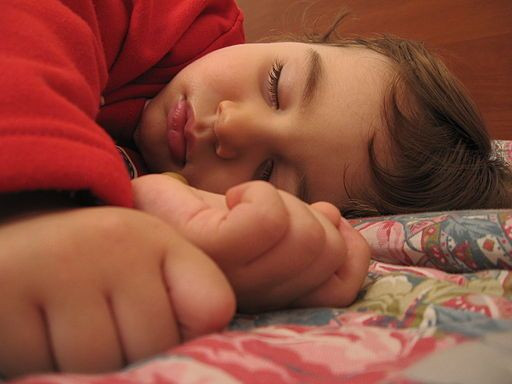Sleep Apnea in Children: Effects May Include ADHD, Learning Problems

New research confirms the relationship between obstructive sleep apnea in children and ADHD, as well as other behavioral and cognitive problems. Children with sleep apnea, a common type of disordered breathing during sleep, are more likely to have difficulties with learning and attention.
Obstructive sleep apnea, a type of sleep-disordered breathing (SDB), affects about 2 percent of children in the United States, according to the American Academy of Sleep Medicine. The link between obstructive sleep apnea in children and ADHD (attention-deficit hyperactivity disorder) has been previously established, but this is the first sleep study to use self-reports in assessing children's adaptive behavior, or ability to adapt to new situations.
The study, published in the April edition of the journal SLEEP, analyzed sleep and cognitive data from 263 Arizona children enrolled in the Tucson Children's Assessment of Sleep Apnea Study (TuCASA) over five years. The children, all between 6 and 11 years old, completed overnight sleep studies and standard series of neurobehavioral tests at the beginning and end of the 5-year period. Their parents also answered questionnaires about the children's behavior.
The sleep studies divided the children into four groups: those who never had sleep-disordered breathing, those who had it the first time but not the second, those who had it only the second time (new onset), and those who had it both times (persistent).
The results showed that children with new onset sleep apnea were at least four times as likely to have behavioral problems- the likelihood rose to six times higher if they had persistent sleep apnea.
The children with obstructive sleep apnea were more likely to have parents reporting problems with their hyperactivity, attention, communication abilities, self-care, and ability to adapt to new situations. They were also likely to be suffering academically, with grades of C or lower in school.
"This study provides some helpful information for medical professionals consulting with parents about treatment options for children with SDB that, although it may remit, there are considerable behavioral risks associated with continued SDB," said Dr. Michelle Perfect, the study's lead author and assistant professor in psychology at the University of Arizona in Tucson.
Obstructive sleep apnea is a major cause of snoring, occurring when soft tissue in the back of the throat relaxes too much during sleep and collapses into the airway. This cuts off oxygen intake, and the temporary suffocation sends a signal to the brain to wake up immediately. When sleep apnea is especially severe, it can interrupt sleep hundreds of times throughout the night- depriving the brain of oxygen and causing exhaustion the next day.
Children with sleep-disordered breathing generally have larger tonsils and adenoids than other children their age, and most children with sleep apnea have a history of loud snoring. Effective treatment options for children include the surgical removal of the tonsils and adenoids or the use of continuous positive airway pressure (CPAP) therapy.
The Arizona researchers say in their study that most children with sleep apnea have larger tonsils and adenoids than those without it, and are much more likely to snore loudly. Tonsillectomies can provide effective sleep apnea treatment, and so can continuous positive airway pressure (CPAP therapy).
Perfect said in a statement that obstructive sleep apnea in children typically declines into adolescence, but that "taking a wait and see approach is risky" for parents who are worried about their children's cognitive and behavioral development.
"School personnel should also consider the possibility that SDB contributes to difficulties with hyperactivity, learning and behavioral and emotional dysregulation in the classroom."
The New York Times suggests that ADHD-related learning problems may often result from obstructive sleep apnea in children, and that the symptoms could be better treated with sleep improvements than with stimulant medications like Adderall and Ritalin, which can actually increase sleep deprivation.
Published by Medicaldaily.com



























